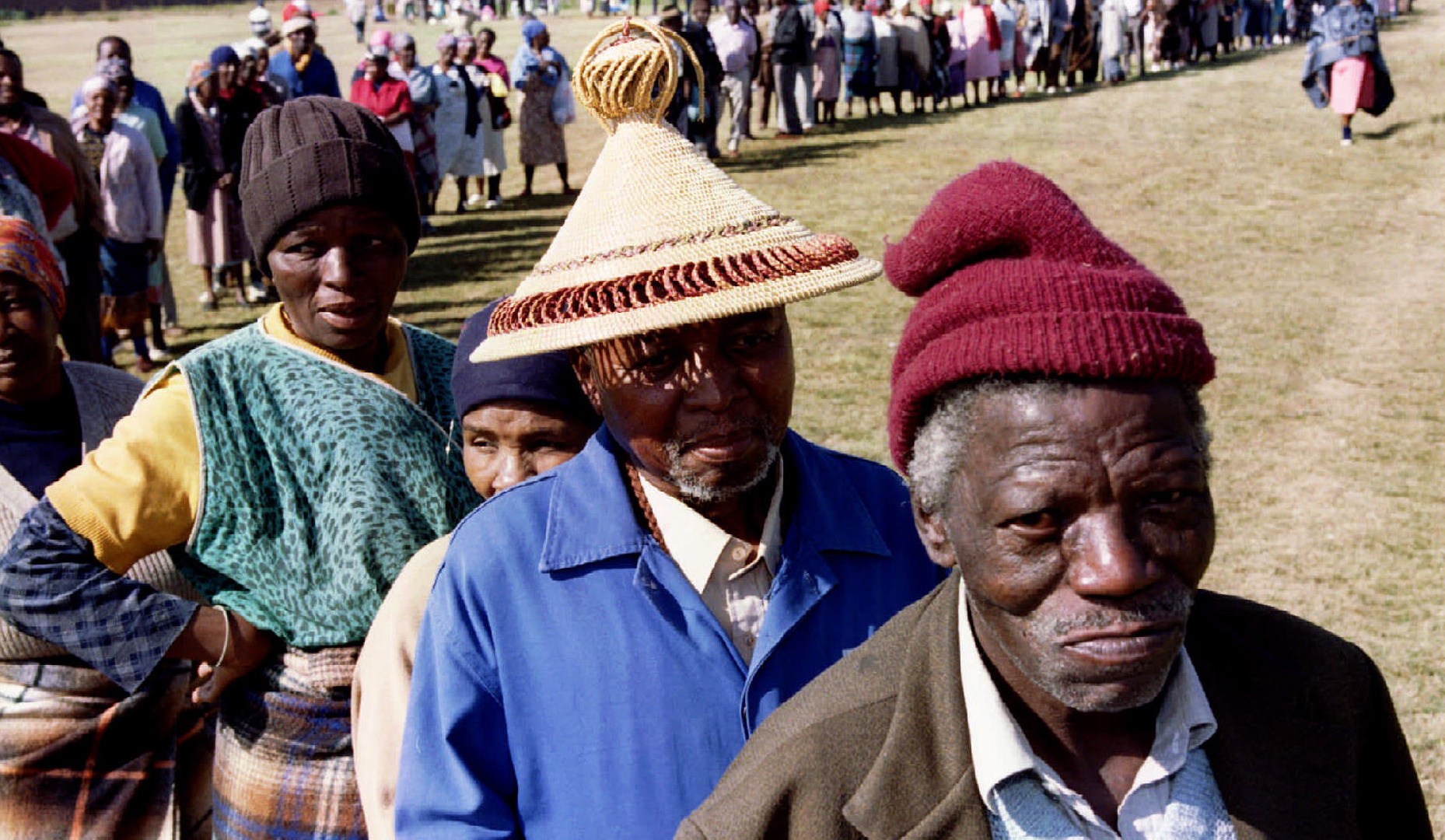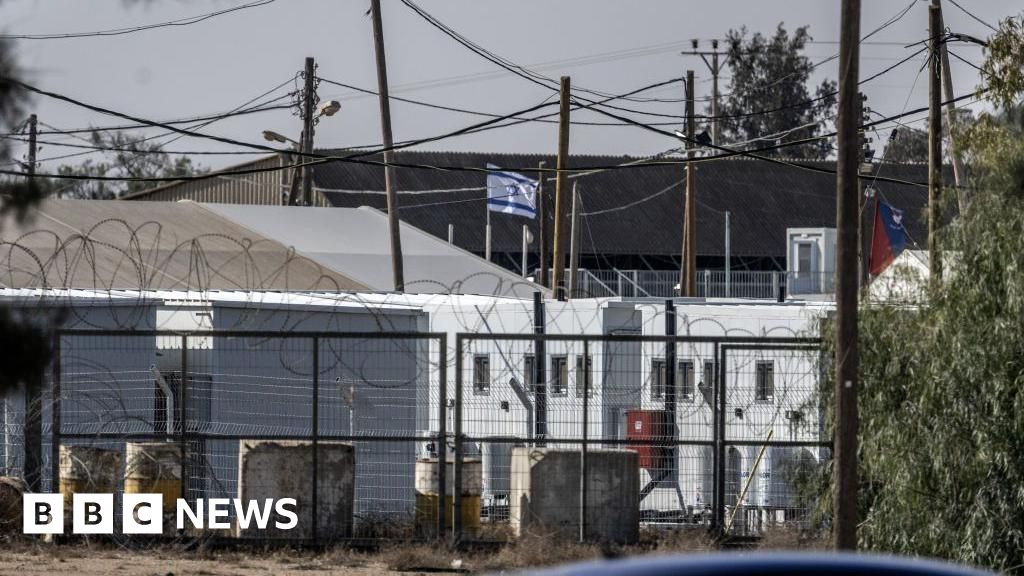South Africa’s post-apartheid democracy is sustained by protest | Opinions
On April 27, South Africa marks the 30th anniversary of the end of apartheid, when we, South Africans, finally won the fight for all to be recognised as equal citizens. We will hold a national election just a month later, on May 29.
Every election in South Africa is a chance for us to remind ourselves that our country belongs to all those who live in it. But this year’s vote has special meaning.
It will be a chance to reflect on what we have learned as a nation through our many successes and failures over the last three decades.
Ironically, perhaps the most important lesson to reflect on is that elections, though important, are just one part of a functioning democracy. Indeed, over the last 30 years, we have learned that in a democratic society, real results depend on people holding their leaders accountable through protest and community organising, not by voting alone.
People power works
South Africa’s first multiracial election began on April 26, 1994. The vote ended white minority rule, swept Nelson Mandela to the presidency, and brought massive positive changes in human rights, housing, education, healthcare, freedom of movement, and more.
Subsequently, April 27 became Freedom Day and was designated a public holiday to celebrate the end of apartheid.
Still multiracial elections did not erase apartheid’s impact. The scars of oppression remain, particularly in the form of massive economic inequality which successive governments have failed to address over the past 30 years. Corruption has also been rampant, while the provision of basic services has been inadequate.
Apartheid’s legacy also resides in the country’s landscape, which had been demarcated through segregation and dispossession. A simple visit to the beach, for instance, conjures memories of people of colour hiding in the bushes to avoid apartheid police who enforced a whites-only seaside. A walk down a certain road reminds us of homes of Black, Coloured, and Indian families demolished by the apartheid regime to make way for white neighbourhoods. To this day, housing inequality still largely falls along racial lines.
These realities have meant that the democratic struggle has continued for the past 30 years, with South Africans winning many of the most significant changes not through the ballot, but through protest.
The Treatment Action Campaign of the late 1990s and early 2000s mobilised people to rally and force the government to acknowledge the reality of HIV spreading and provide antiretroviral drugs as the AIDS epidemic ravaged our nation.
In 2005, a group of shack dwellers in informal settlements formed Abahlali baseMjondolo, a grassroots socialist collective, to demand housing rights for landless people who were forcibly displaced under apartheid rule and barred from owning property. The group’s flagship protest strategy of barricading settlements to prevent local authorities from evicting shack dwellers has been so successful that the collective now has over 100,000 active members and has forced government officials to respect housing rights.
And in 2015, the #FeesMustFall student protesters defied extraordinary police violence on campuses to successfully block planned tuition increases by universities, push the government to increase funding to students, and force student issues onto the national political agenda.
These are just a few examples of protest actions that have made it to front pages and news broadcasts. But there are near daily demonstrations over issues as diverse as labour disputes, gender-based violence, and service delivery that the media does not cover as much but are just as important.
Indeed, South Africa has one of the highest rates of protest in the world, with regular demonstrations being held since the 1970s.
Our protest culture is a legacy of the apartheid years. Apartheid didn’t end because the white supremacists in power developed a conscience. People systematically and collectively undermined it with sustained protest. That tradition continues today.
But the main reason we protest so much is simple: People power works. Or, as community activist Bhayiza Miya said: “Real protest is the only language government understands.”
No illusions
Another lesson from the last 30 years in South Africa is to never take rights and freedoms for granted. In practice, that means being deeply cynical about the powerful.
In South Africa, we can’t assume our politicians, judiciary and law enforcement have our best interests at heart. After all, apartheid was the law, upheld and enforced by the state. Many of us are therefore sceptical of today’s state, too.
That’s one reason why South Africa’s citizen-led initiatives aimed at budget monitoring, transparency, social justice, corruption and equality are some of the most robust in the world. Indeed, our oversight mechanisms – including litigation, civil society demands for transparency, investigative journalism, and public demonstrations – are so strong that they helped uncover rampant corruption and state capture which led to the ousting of Jacob Zuma from the presidency in 2018.
The broad movement to hold Zuma accountable highlights a third lesson we’ve learned since 1994: Everyone must participate for democracy to succeed.
Under apartheid, there was no “civil society sector”. Everyone – from students to trade unions to musicians to flight attendants – joined the struggle.
Today’s movements are most effective when people across society participate regardless of race, class, gender, citizenship and age. Likewise, grassroots mutual aid efforts which provide everything from food to elderly care show how South Africans instinctively band together to form a safety net when the state and private sectors fail.
Still, we have no illusions about the dire conditions many in South Africa live in today.
Horrendous things have happened here under democracy despite our attempts to hold leaders accountable. There is still no justice for the 2012 Marikana massacre, when police shot dead dozens of platinum miners demanding a modest pay increase. There is still no justice for the deaths of more than 140 patients in 2016 after they were moved to substandard psychiatric facilities in Gauteng province where they faced neglect and starvation.
Further, our democracy has effectively produced one-party rule at the national level, with the African National Congress (ANC) winning six straight elections since 1994.
While there are some good reasons for the ANC’s repeated victories, including fears of a return to apartheid and concerns about other parties’ abilities to manage state bureaucracy, there’s no denying South Africa’s young democracy suffers without multiple viable national parties.
But that may be changing, too.
In May, the ANC for the first time will face serious national challengers, with the Democratic Alliance, left-wing Economic Freedom Fighters, and Zuma’s new MK Party emerging as contenders who could force our first-ever coalition government since democracy began.
It’s a sign that South Africa’s electoral democracy is maturing, and it’s fair to say that protests and citizen organising helped us reach this milestone.
So on this 30th anniversary year of apartheid’s end and democracy’s start, South Africans of all backgrounds will have plenty to think about the past, present and future, as the May vote approaches.
But as in April 1994, casting our ballots will just be one step.
After that, we’ll go back to the streets, courtrooms and communities where the hard, daily work of tending to our democracy will continue.
The views expressed in this article are the authors’ own and do not necessarily reflect Al Jazeera’s editorial stance.
Check out our Latest News and Follow us at Facebook
Original Source







